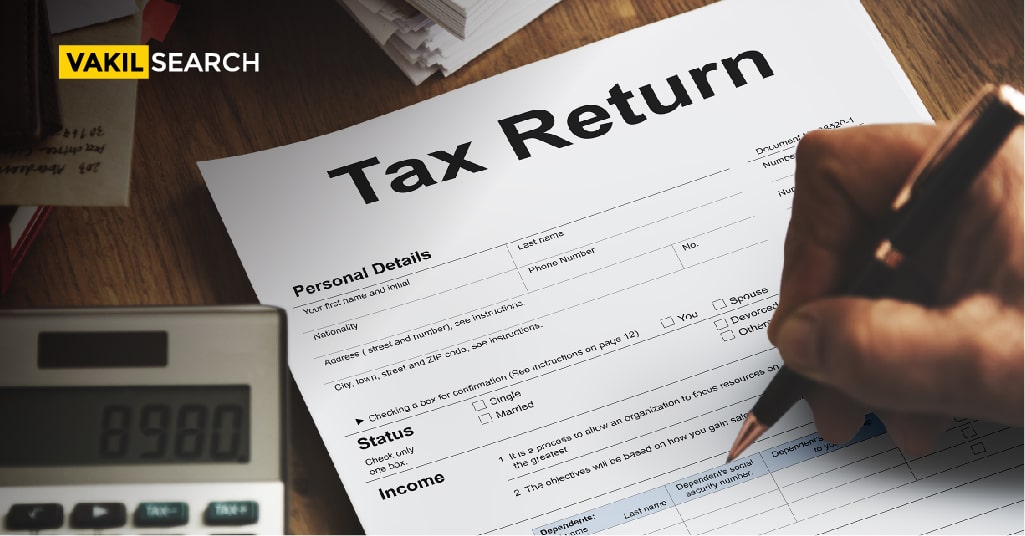Many of you are searching for the definition of a Nil Income Tax Return online. We are here to answer your query. Keeping in mind that over 22 lakh taxpayers enrolled in the SMS system will benefit from the 'Nil' filing system for monthly GST returns, which was launched on June 8, 2020.
We believe many of you fall below the taxable income and therefore did not pay taxes during the year. This you need to file and declare to the Income Tax Department. Yes, Nil income tax return filing is compulsory under the Income Tax Act, 1961 for taxpayers. By filing the nil return, the taxpayer would declare to the Income Tax department that they had no income/activities during the assessment year. In this article, we will be discussing who should file the Nil return. And also on how they should register under the Income Tax Act.
Company
All the companies which are registered in India should file the income tax return every year in Form ITR-6, regardless of the business activity or profits or revenue. Hence, Nil return filing is compulsory for all the inactive companies and dormant companies. If a company is being wound-up, it should still file the income tax. And also if the company’s annual returns are being struck-off from the MCA (Ministry of Corporate Affairs) Register of Companies.
Who Is Required to File Income Tax Return?
If you are less than 60 years of age and your total annual gross income exceeds ₹ 2,50,000, then you will have to file an income tax return.
Proprietorship
Proprietorship firms should file the income tax return in Form ITR-3 or ITR- 4. Form ITR- 4 can be filed by the taxpayers who have chosen for the presumptive taxation scheme. Even if there is no business activity or profit, while in a proprietorship firm where ITR-3 or ITR-4 Form has been filed previously, Nil return should be filed even if there is no business activity or profits. For most of the proprietorship firms, also if there is no activity or revenue, there will always be certain expenditure incurred which will be carried forward as a loss. So, all the proprietorship firm should file the Nil return even if there is no activity.
Limited Liability Partnership
All the LLPs which are registered in India should file the income tax return every year in the Form ITR-5, regardless of the business turnover or activity or profits. Even after incorporating, if the LLP has not started any activity, it should still file Nil return and MCA annual return through Form 8 and Form 11.
Strategic tax planning made easy – Trust our Tax Calculator for precise estimations and increased savings.
Individuals
According to the Income Tax Act, an individual having an income of ₹2.5 lakhs or more should file the income tax return in ITR-1 or ITR-2 form every year. The income tax return should be submitted by all the individuals on or before 31st July every year. If your income does not exceed ₹2.5 lakhs/per, then you aren’t required to file the Nil return. If you have registered your income tax return in your previous year, then you have to submit the Nil return even if the taxable income is not more than ₹2.5 lakhs/year
Penalty for Not Filing the Nil Return
If a taxpayer fails to file their income tax return on or before 31st July, a penalty of ₹5000 will be applicable from 1st August. If the income tax return is not filed before 31st December of the same assessment year, the income tax penalty will be increased to ₹10,000.
Why Should One File the Nil Tax Return
You can file a Nil tax return if you want to keep a record of your earning falls whether it falls below the taxable limit or not. There are many instances where income tax serves as proof. For example, when one is applying for their visa or while getting their passport made. When one is filing income tax returns for so many years and suddenly fell into the ‘below taxable limit’ this year. By filing the Nil tax return, they can continue maintaining the record. Additionally, they can prevent scrutiny from the Income Tax Department.
It will help claim the refund also. For instance, one’s total income without taking the deductions into account could be above the taxable limit. But with the deductions, it might be below the minimum exemption limit, that is ₹2,50,000. If one has paid more taxes than required, one should file the income tax return to claim a refund. Filing income tax returns is compulsory for those whose total income exceeds ₹2,50,000. It is not necessary to file the income tax return if the total income doesn’t exceed ₹2,50,000.
Filing Nil Income Tax Return Online
Filing the nil return is the same as filing a regular income tax return. Enter the income details and deductions. Income tax is calculated and will be shown that there is no tax due. Submit the immediate return to the concerned Income Tax Department.
Conclusion
The purpose of this document is to inform you about filing Nil income tax returns. Please hurry up and file your taxes before the last date for filing
Also Read:










